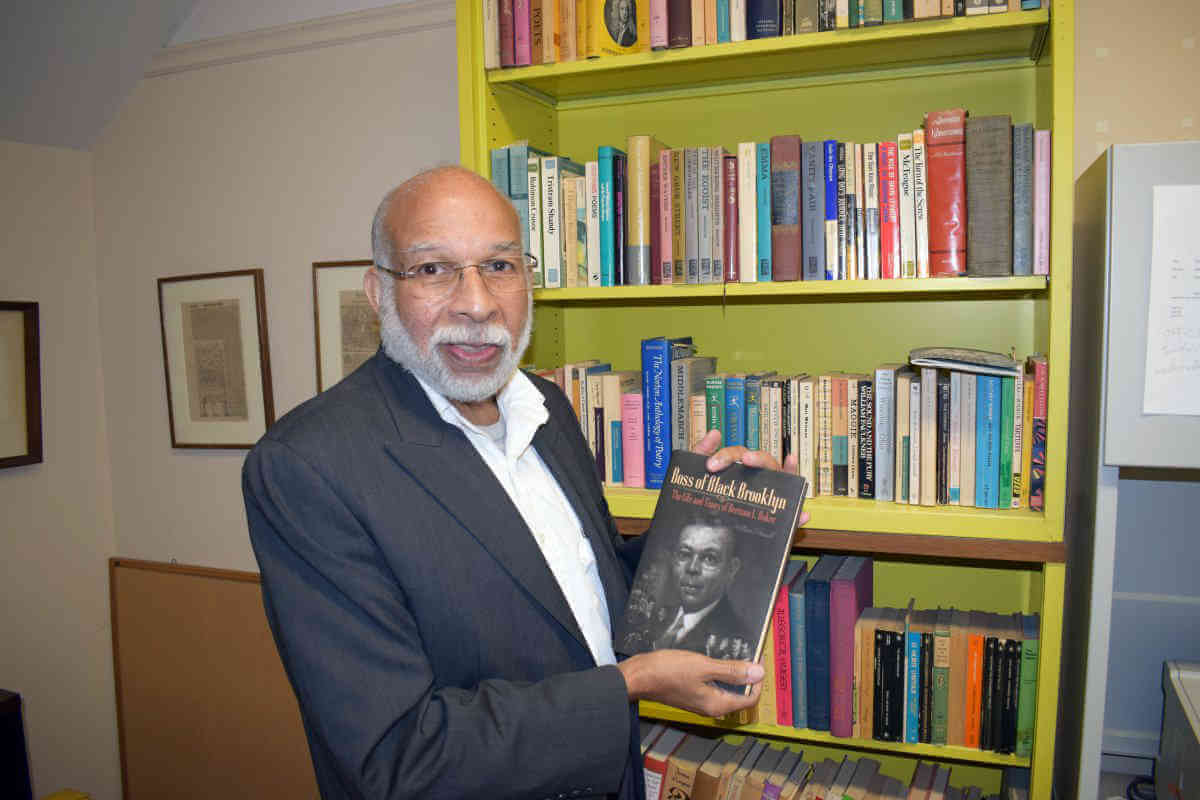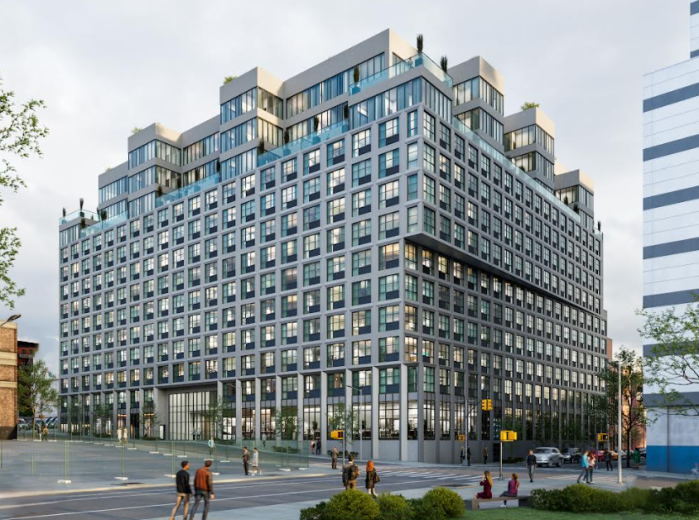He was the Boss of his time.
In a new biographical book about the life of Bertram L. Baker — the first black person to hold public office in Brooklyn — his grandson, author and Brooklyn College professor Ron Howell, chronicles the life of his late elder in “Boss of Black Brooklyn: The Life and Times of Bertram L. Baker.” He will be reading excerpts from his book at the Greenlight Bookstore on Oct. 30.
The inspiration for the book came from Howell’s desire to close a chapter of curiosity about his grandfather’s life, and his admiration for studying the past.
“I’ve been a journalist all of these years and deep down inside I had this mostly unrecognized love of history that I now acknowledge,” he said.
But he also wanted to inform people about how important his grandfather was to black Brooklynites, and his rise to leadership, because he began to witness how his great name was slowly leaving the consciousness of everyday New Yorkers.
“After he died people would say, ‘Oh, your grandpa was Bertram Baker?’ and if they were in their eighties, they’d say ‘I knew him,’ said Howell. “But as the as years go by, I heard that less and less, and he was sort of forgotten and unknown, and I had this feeling within me to find out more about him and share it.”
Bertram L. Baker was born on the Caribbean island of Nevis in 1898 and came to the states as a teenager in 1915. He founded the United Action Democratic Association club, and became the first black politician to represent Brooklyn in the state Assembly in 1948. As an immigrant in the rapidly growing city, Baker helped redefine the Democratic party during a time when most native black Americans didn’t trust it, and created an avenue where newcomers could work together.
“When people started looking to Brooklyn and a lot of black people were coming, especially from the South, and that’s really what turned Bertram Baker into the powerhouse that he was,” said Howell. “He was able to unite the Caribbean immigrants from early 1900’s, with black people who were from South, and build a political club.”
He says the lack of hesitance Caribbean immigrants had in regards to the history of American political parties allowed them to maneuver and gain influence in ways that black Americans would never attempt.
“Baker and others rose through the Democratic party and had power, and the reason is that they were able to gain influence in Democratic party at a time where black Americans were not just suspicious, but hostile, to the party because they considered it a party of slavery,” said Howell. But you’re talking about whole group of people — immigrants didn’t have that experience and the Democratic Party was just a democratic party to them, and they came and what they saw was who had the power at time.”
The upside was the positive effects it would later have in political power and job creation. The book covers how Baker was a force in creating and attracting people to jobs in the borough, and allowing black lawyers and other aspiring political movers-and-shakers to get their head start.
Howell says the overarching message within the book is being appreciative of the changemakers, and providing some perspective on how much black Brooklyn has changed over the years, and the dwindling history that was once there.
“We should have great respect for our ancestors and those who paved the way and made life more bearable, and develop a necessary love within you to make yourself understand that you have to take that and pass it along,” he said. “Black Brooklyn is not what was and I guess that also stands out — because the setting and focus of the book is vanishing before our eyes and you have to wonder what it’s going look like in 10 to 20 years.”
“Ron Howell presents Boss of Black Brooklyn” at Greenlight Bookstore [632 Flatbush Ave. between Chester and Westbury courts in Prospect Lefferts Gardens, (718) 246–0200, www.green





















